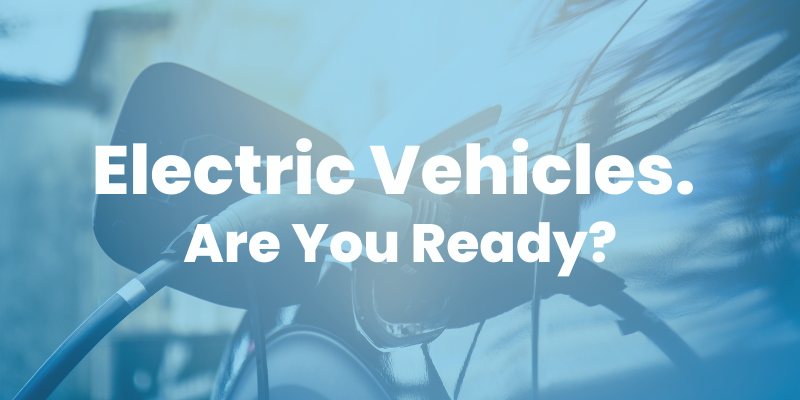Are You Ready for Electric Vehicles?
Are You Ready for Electric Vehicles?

Electric vehicles are the future of the motor industry. They are more environmentally friendly, economical and practical than gas or diesel vehicles. Electric vehicles are still a relatively new technology, but they are quickly gaining in popularity and will soon dominate the market.
If you're thinking of buying a new car, you should definitely consider an electric vehicle. Here are some things to keep in mind:
Electric vehicles are more environmentally friendly than gas or diesel cars. They don't produce any emissions, so they're much better for the environment.
Electric cars are also more economical than petrol cars. They're cheaper to operate and maintain, and, used effectively you'll save money on fuel costs.
Why Electric?
Electric vehicles are, of course, powered by electricity, rather than petrol or diesel. This makes them more environmentally friendly, as they emit zero emissions. They are also more economical to operate, as electric vehicles cost less to operate than their petrol or diesel cousins.
Electric vehicles have a large battery, which is charged by plugging into an electrical outlet. This makes them more convenient to operate, as you can charge them at home. As technology improves, many electric vehicles also have a longer range than petrol or diesel vehicles, and they can be plugged into a charging station to recharge quickly. Limited range or 'Range Anxiety' might be a thing of the past!
How do you charge an Electric Vehicle
Electric vehicles can be charged in a variety of ways: through a standard wall outlet, at a public charging station, or by plugging into an industrial charger.
Charging your electric car at home is easy: we recommend having a home charging point installed to provide the most convenient and cost-effective charging for your new electric vehicle. If this isn't an option, most EV's can be charged using a standard 3-pin wall socket. Just plug the charger into a standard wall outlet and connect it to your car. Most electric cars come with a standard charging cord that plugs into the charging port on the car. The other end of the cord plugs into the wall outlet. Once plugged in, the car will start charging automatically. The charging process will take a few hours, depending on the size of the battery.
If you don’t have access to a home charger, you can charge your electric car at a public charging station. These stations are usually located in parking garages or other public places. To use a public charging station, you’ll need to purchase a charging card or membership. Once you have the card, you can insert it into the charger and start charging your car.
Some businesses, such as hotels and restaurants, also offer charging stations for their customers. If you’re staying at a hotel that has electric vehicle charging stations, be sure to ask about the fee before you plug in.
Finally, you can charge your electric car at an industrial charger. These chargers are much more powerful than home or public chargers, and can charge a car in a matter of minutes. However, they’re also much more expensive to use. If you have access to an industrial charger, it’s best to use it only when you need a quick charge.
No matter how you charge your electric car, the process is simple and easy. With a little planning, you can make sure that your car is always ready to go.
Pros of buying an electric car over a petrol or diesel car
Electric cars are becoming more and more popular as people become more environmentally conscious. Given the rising cost of Petrol and Diesel, they are cheaper to operate and maintain than gas or diesel vehicles, and they produce no emissions, making them much better for the environment.
Electric vehicles are still a relatively new technology, but they are quickly gaining in popularity and will soon dominate the market. If you're thinking about buying a new car, an electric car is definitely worth considering.
Cons of buying an electric car over a gas or diesel car
While electric cars have many advantages over petrol or diesel cars, they also have some disadvantages. One major downside is that they can be more expensive to buy than traditional vehicles. Additionally, electric cars can take longer to charge than petrol or diesel cars, and the current infrastructure for charging them is still quite limited.
Overall, however, electric cars are the future of the motor industry. They are more environmentally friendly, economical and practical than petrol or diesel vehicles, and with continued development they will only become more popular. If you're considering buying a new car, adn have the ability to charge a vehicle at home, an electric car should definitely be on your radar.
Conclusion
Electric vehicles are the future of the motor industry. They are more environmentally friendly, economical and practical than petrol or diesel vehicles. Electric vehicles are still a relatively new technology, but they are quickly gaining in popularity and will soon dominate the market. We encourage everyone to consider electric vehicles as their next vehicle purchase. If you have any questions about electric vehicles, please let us know!
